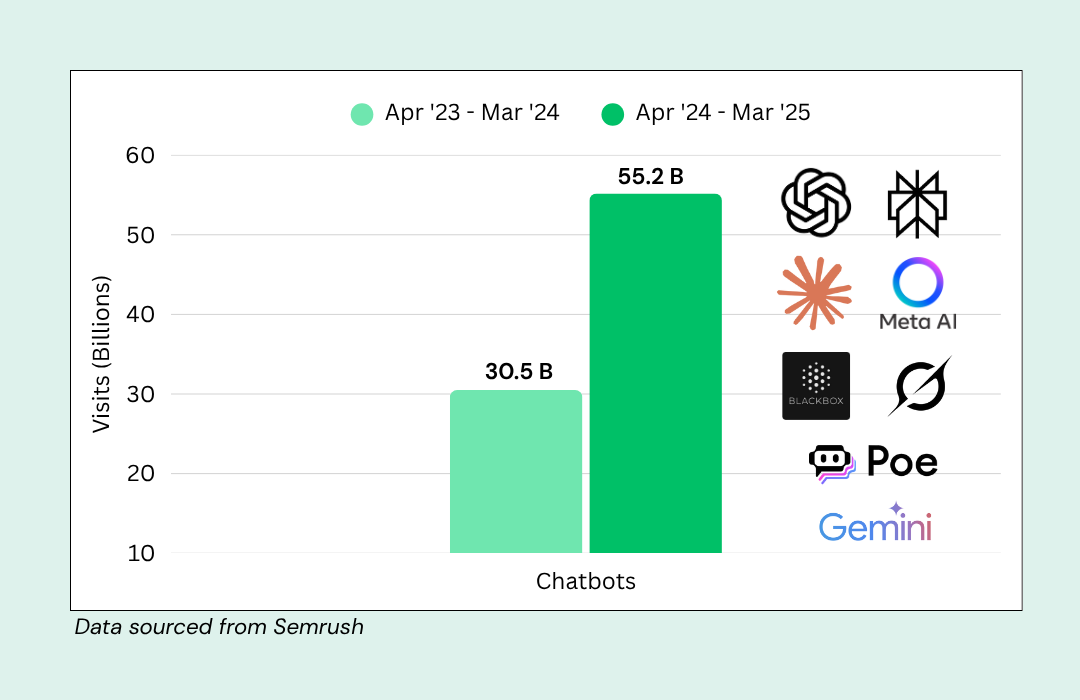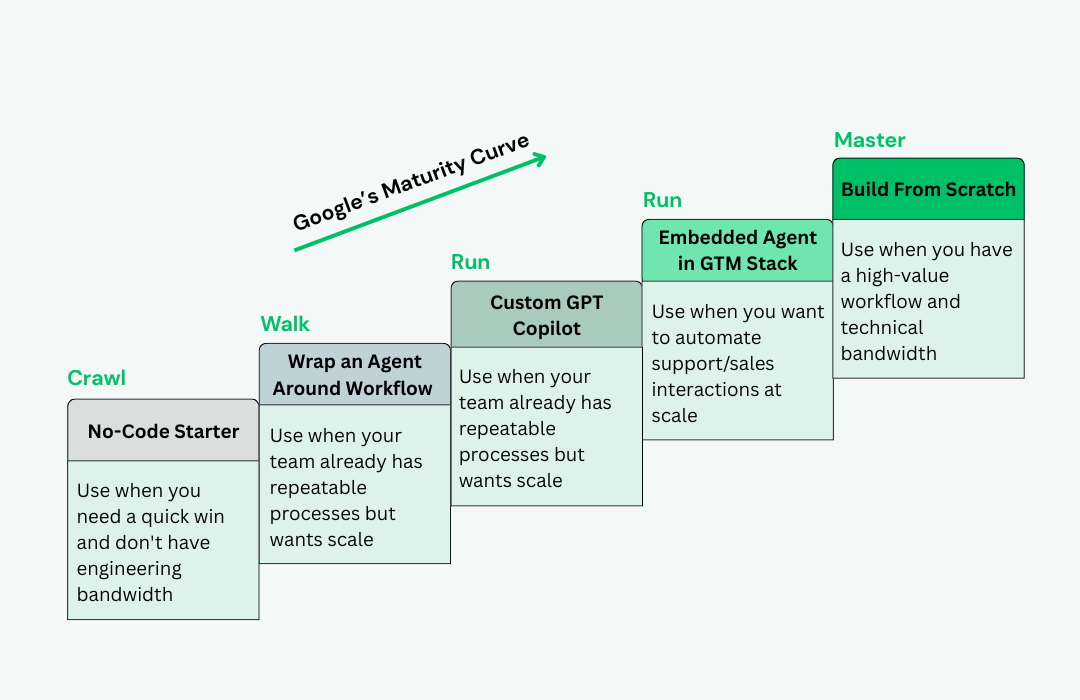You asked. We’re answering. This guide covers everything you need to know about sales operations, including its KPIs, roles, models, and processes.
Read on, or choose your own adventure:
- What is sales operations?
- Key functions of sales operations
- Technology adoption and optimization
- The structure of an agile sales operations unit
- Sales ops manager vs. typical sales manager
- The sales operations process, metrics, KPIs
- Sales operations best practices
- What is the role of a sales operations manager?
- What department is sales operations?
- How do you develop sales operations?
- What are the components of sales operations?
- How to run a sales operations team: 4 essential points
What is sales operations?
Sales ops is one of those “it’s a verb and a noun” situations. I’ll break it down:
Sales operations are all the activities and processes within a sales organization that support, enable, and drive front line sales teams to sell better, faster, and more efficiently.
Sales operations is also the team (or solo player) owning the strategy and execution of the above.
(Okay, so it’s technically a noun and another noun. Sue me.)
In short, sales ops leaders enable sales reps to focus more on selling in order to drive business results.
More than anything else, sales operations brings a system to selling.
This often overlooked and sometimes under-appreciated department uses data to drive strategy, best practices to guide training, and technology to hack success.
Because of its broad scope and deep impact on both top line (productivity) and bottom line (efficiency) performance, sales ops has become a key piece of a mature sales organization — especially in the enterprise, SaaS and B2B spaces.
What are the key functions of a sales operations group?
Sales ops has expanded its role to include nearly all functions that provide strategic insight needed by a sales team to achieve sustainable growth.
The composition, hierarchy, and primary role of sales ops may differ across industries and even across similar businesses of diverse sizes, but many of today’s sales ops leaders perform a standard core set of functions:
Strategy
Sales ops originally functioned as a small team of number crunchers who executed financial analyses, reporting, and sales forecasting. As the volume of business information exploded, sales ops has evolved into a more powerful data analysis and reporting unit that can provide critical insight on the following areas:
- Sales process optimization
- Performance metrics analyses
- Formulation of incentives program
- Evaluation of sales team training needs
- Assessment and adoption of sales methodologies
- Selection of enablement software and other technology tools
- Sales territory assignment and growth forecasting
Operations
Sales ops professionals assume administrative and operational tasks to allow hard-core sellers to focus and get better on what they do best: selling.
- Salesforce recruitment, onboarding and training
- Implementation of recommended compensation and incentives program
- Allocation of accounts and sales territories
- Maintenance of communication and collaboration channels
- Contract lifecycle management
Process and performance
Sales ops emerged to improve sales performance.
To achieve that, sales operations pros help streamline processes to speed up the sales cycle and enable sellers to close more deals.
Understandably, this is where the number-crunching prowess of sales ops analysts has the most significant impact.
- Selection of key sales metrics to adopt
- Training & development (coaching and mentoring)
- Optimization and implementation of sales process
- Workflows
- Sales activities
- Lead generation
- Conversion rates
- Implementation of sales frameworks and methodologies
- Optimization of Sales Tools, Knowledge Base and other Assets
- CRM
- Automation
- Data Analytics
- Contract Management
- Forms and Templates
- Client Engagement & Outreach
Technology Adoption and Optimization
Today, sales teams harness the power of big data analytics, artificial intelligence and machine learning to improve performance and future proof profitability. But because tool complexity can distract sellers, sales ops should own the stack.
Here’s what Sales Ops leaders should own regarding the tech stack:
- Defragmentation & Integration of Technology Tools
- Customer Relationship Management (CRM) Platform
- Business Intelligence Services
- Data Analytics Software
- Communication and Conferencing Tools
- Content Sharing and Management
- Contract Lifecycle Management
- Email Automation
- Performance Management Software
The Structure of an Agile Sales Operations Unit
Given the variance of organizational structures even among similarly scaled players in the same industry, pinning down the ideal structure for sales ops is nearly impossible. Even then, there are organizational models and structural templates you can build from.
Matt Cameron, managing partner at Sales Ops Central, wrote an excellent guide on how to build a sales ops unit for fast-growing companies.
In the guide, Matt described the different stages — based on annual recurring revenue (ARR) — at which companies should hire its sales ops people.
Based on his matrix (see below), companies reeling in below one million dollars in ARR can hire a number of tech-savvy staff, analysts and administrators to:
- Manage the CRM.
- Generate, analyze and present reports.
- Manage compensation.
Only when ARR consistently exceeds $1 million should the company hire a “Sales Effectiveness Manager” who will supervise talent on-boarding, training, and certification.
When ARR consistently exceeds $10 million, then a separate unit managed by a new Sales OpsDirector may be launched.

In addition to the technical and sales enablement responsibilities, the newly formed Sales Ops unit will be responsible for the following tasks:
- Go-to-market strategy & planning
- Sales growth and operating plan
- Deals desk
- Territory design
- Compensation plan
- Forecasting
- Sales process enforcement
Sales Ops Manager vs Typical Sales Manager

A sales ops unit aims to support sales managers not only to achieve targets but to optimize the talent pool (i.e., the sales floor) under their care.
To do this, a sales ops manager assumes many of the administrative and operational loads required to run a sales organization.
This frees up the sales manager to focus on leading sellers in meeting their quotas and making tactical decisions and strategic plans for long-term growth.
Depending on organizational maturity, sales ops managers can assume leadership over the following processes/areas:
- Generate data-driven insight and forecasts for strategy planning
- Recruit, on board, and train sales staff
- Content and knowledge base management
- Customer contract life cycle management
- Implement compensation and incentives program
- Enforce processes, methodologies, and performance matrices
- Administer, synchronize and optimize technology stack including CRM
The Sales Operations Process
[slideshare id=67371270&doc=whatissalesoperations-161018211819]
Among the key benefits of having a functional sales ops unit is the formulation, adoption and execution of an efficient sales process guiding the entire sales organization.
Established processes serve as templates and reference points salespeople return to when the road ahead turns hazy or a new challenge suddenly emerges.
The gateway (i.e., demand) for sales ops in early-stage sales organizations may occur at different points in the sales process or in their structural and functional makeup.
For example, sales ops may emerge to assist the sales leader in handling:
- Administrative tasks
- Technical functions
- Strategic responsibilities.
In many mature organizations, sales ops fully assume ownership of administrative and technical functions while lending sales leaders its analytical support where strategy formulations and other critical decision-making scenarios are concerned.
Here are some areas where sales ops deliver significant impact on process:
- CRM administration and optimization
- Integration and synchronization of other tools in the technology stack
- Optimization and implementation of sales process
- Improvements in reporting workflow and accuracy
- Automations in selling/non-selling tasks
- Management of knowledge base and content assets
- Ownership of talent development and compensation
Common Sales Operations Metrics & KPIs

Preferred metrics vary across teams and organizations. For sales ops, these key metrics provide insight not only on how to improve win rates but also on how the entire process can still be optimized.
The following are just a subset of all metrics commonly used by many sales operations units to evaluate past performance and to consistently improve organizational results in the long term:
Salesforce Quota Achievement Rate is the percentage of the sales team that have achieved 100% of quota during a given period.
Average Win Rate is the ratio of closed-won deals over the total number of won and lost deals.
Average Sales Cycle Length is the average length of time it takes to close deals.
Average Deal Size is the average value of deal sizes sellers are managing at any given point in the process.
Time Spent Selling Is the actual time sellers spend selling as compared to other tasks such as internal meetings, training, and administrative work.
Lead Response Time is the time it takes before leads respond positively to a pitch or call to action.
Weighted Pipeline Value is the estimated value of the pipeline at a given time in the process, used to make profit/loss forecasts.
Pipeline Efficiency measures how effective sellers are at managing their pipelines.
Forecast Accuracy computes the rate of error of prior forecasts vs. actual results or performance.
Number of Prospect Meetings per Period is a measure of prospecting activity that compares the number of meetings individual sellers were able to set in a given period.
Sales enablement vs. sales operations
Sales operations and sales enablement are sometimes used interchangeably — but they are not synonyms.
They do coincide in several areas and share many goals. Both aim to significantly improve the performance of a sales organization.
So what’s the difference?
Sales ops focuses on the entire organization and the structures, processes, human resources, and technologies that comprise it – meanwhile sales enablement will focus only on the efficiency and performance of sellers and the satisfaction and experience of customers.
In this context, you may think of sales enablement (which historically emerged much later) as a subset of sales operations.
Many companies do in fact run sales enablement units under the umbrella of sales ops. But this is not always the case. Some run the two units as co-equal branches of the sales organization.
As a rule of thumb and where both are present, contemporary sales ops handle the operational side of selling (including territory planning, deal and account assignments, transactions management, compensation, and overall management of systems and technologies used by the organization).
On the other hand, sales enablement focuses on aspects that directly impact the performance of sellers (including staff training, sales communication, customer engagement tools, and process efficiencies).
Sales operations best practices
Every sales org is different, so the role, structure, and implementation of sales ops at your company may look different than other companies.
(Need proof? Corporate culture, scale, target markets, and sales maturity are just some of the factors shaping the needs of each organization.)
But some best practices remain the same across the board. I like these points from the SAVO Group report:
Sales ops best practice #1
Sales ops and sales leaders should collaborate on strategy formulation by forging short-term and long-term game plans based on sales leaders’ field experience, market empathy, and domain experience combined with the sales ops unit’s data-driven insight. Sales ops can provide the following key inputs into the mix:
- Higher predictability of performance and results
- Identification and implementation of Key Performance Metrics (KPI)
- Analysis of territory allocation and account assignment plan.
- Evaluation of sales processes, and salesforce structure
- Formulation of sustainable compensation plan
- Assessment of go-to-market strategies and methodologies
Sales ops best practice #2
Sales ops can nurture talent and enable salespeople to deliver more value when it comes to achieving the overall sales strategy. On this front, sales ops can take ownership of the following processes:
- Recruitment and onboarding
- Product training
- Sales methodology
- Market training
Sales ops best practice #3
Sales ops can drive sales team team efficiency and motivation. They can do so by managing the following functions:
- Internal communications
- Review of external, customer-facing communications prior to broadcast/transmission
- Process improvements
- Automation for routine, non-core tasks
- Administration of CRM and other tools
Sales ops best practice #4
Sales ops can work with marketing to fine-tune brand messaging and content. Because sales ops hold a trove of clients’ behavioral data, they can collaborate with marketing peers on:
- Funnel structure development
- Content development
What is the role of a sales operations manager?
The goal of sales operations is to minimize friction in the sales process to ensure that the salespeople are successful in their activities. The role of a sales operations manager is to supervise a sales operations specialist team, set goals and KPIs, create revenue forecasts, and help optimize the sales process, which requires leadership skills.
1. Getting accurate visibility of the sales team performance
The manager needs to track the performance of the whole team and report on its progress. Each member of the sales team should set monthly, quarterly, and yearly goals.
But should you, as sales ops, set sales operations KPIs and goals for the whole team?
I’d argue yes. Although it’s obviously vital for each team member to have individual goals, setting goals for the whole team will help you track their performance and pinpoint areas that require improvement. If you want to manage team goals effectively, you need three things:
- A working sales process
- A good CRM
- A way to monitor sales rep performance
2. Be responsible for the sales funnel
As the sales operations manager, it is your responsibility to oversee the sales funnel. You should ensure that all your contacts go through the firm’s sales funnel smoothly.
You’ll want to check the conversion rates at each sales funnel stage and analyze all essential data to see the impact on sales velocity. The results from the analysis will help you make recommendations on how you can improve the funnel.
Bonus: What’s the Difference Between a Marketing Funnel & Sales Funnel?
3. Optimizing the sales process
Checking and optimizing the sales process is part of the role of a sales operations manager. You probably already have a sales process for your organization. But have you checked your sales process to ensure its efficacy and make improvements where needed?
A sales manager can discover areas in your sales process that are costing you deals. Apart from identifying the issues with your sales process, the sales operations manager can also recommend solutions to make the process effective.
4. Selecting and managing sales automation tools
The sales operations manager’s responsibility is to provide the technological stack, including tools and capabilities that help your sales team do their job.
Additionally, the manager should check to see if your organization is getting the best systems you already have. They should evaluate the capabilities and the usage of your team’s sales tools to ensure success.
5. Responsible for sales forecasting
Each rep in your team may be focused on meeting their individual goals. However, they should understand the broader goals that they should strive to achieve. With accurate forecasting, it’s possible to gauge everyone’s performance. As such, you’ll create realistic and challenging team goals that are achievable.
6. Choosing and maintaining sales tools
Choosing and maintaining the CRM and other sales tools also consists of sales operations tools. You can get your team to work together by choosing a CRM that the sales reps trust. A transparent CRM helps reps to assess the quality of their prospects.
7. Leading sales operations professionals
If you have a large and complex organization, it can be a daunting task for one person to deal with all sales operations issues. The best results come from having a robust team of sales operations specialists.Sales operations managers lead their teams to ensure sales operations tasks and responsibilities are carried out.
What department is sales operations?
Sales operations, also known as sales ops, are in… well, the sales operations department.
(Depending on the shape of your org, this may fall under the larger umbrella of Revenue Operations.)
The sales operations department is responsible for a variety of responsibilities and tasks, including creating and sustaining growth. Sales operations roles encompass sales training, sales strategy, lead management, sales process optimization, and data handling.
How do you develop sales operations at your company?
You can develop a sales operations department in your company in 5 steps:
1. Define your sales ops process
In this step, you need to decide how your sales rep team will work, their tasks and responsibilities, and how to accomplish them.
Some of the tasks and responsibilities of your sales ops team can include digital asset and knowledge management, optimizing the sales process, and administration and optimization of your CRM. It can also help you develop and optimize your compensation strategy, presentation of sales reports, sourcing, and management of tools.
2. Agree on sales ops KPIs
After clarifying what the sales operations process will look like, you should decide on the KPIs you’ll use to evaluate the performance of your sales team. Some of the sales operations KPIs you can use include average deal size, sales forecasting accuracy, average deal size, lead response time, and more.
3. Structure of your team
Some of the profiles you want to hire in your organization include:
- Sales effectiveness manager
- Technical operations advisor
- Sales operations analyst
4. Sales operations training
When you have assembled your team, you should ensure you get the necessary training to carry out their responsibilities. Proper training also gives the team the inspiration and motivation to carry out various responsibilities and tackle challenges.
5. Sales operations tools
Getting your team the right tools and technologies to assist in achieving their goals is essential to the entire team’s success. The right tools and software also ensure the accuracy of sales ops results.
What are the components of sales operations?
We list five essential components of a successful sales operations team:
1. Data management
An updated database is a vital part of your sales operations success. Plus, proper data management can help your organization succeed as you have all the data to help you in decision-making.
2. Analytics and reporting
The right data will help you know which business areas are succeeding, where you are likely to fail, and the opportunities to drive success. Analytics and reporting help you to evaluate success and losses and also help in decision making.
3. Forecasting
Without proper forecasting, an organization can either spend too much that it loses on margin or spend too little to miss on sales. Forecasting will help you succeed based on your outlook of possible sales in the next quarter or two.
4. Pricing and proposal operations
It’s vital to have proper pricing guidelines and proposal operations. The guidelines should be accurate, helpful, and designed to produce valuable insights to sales ops.
5. Accountability
Accountability is one of the best causes of underperforming sales operations in an organization. Lack of accountability leads to increased costs, drags down margins, and reduces revenue. A sales operations manager can keep sales reps accountable for their performance and lift the entire team up.
How to run a sales operations team: 4 essential points
Running a sales operations team can be a daunting task. However, you can try out the following best practices:
1. Develop a formal mission for the team
If you don’t have a clear mission and purpose for your sales operations, then there is no clear path to success. At best, you’ll be diverting essential resources that would be used for other purposes in the organization. It will also add more unnecessary work for the organization.
Therefore, as you create a sales operations team, ensure you have a formal mission statement and objectives to guide its operations. A well-defined mission and purpose will influence the team’s decision-making, strategy, and functions in the organization.
2. Differentiate sales operations and sales enablement responsibilities
The objectives and roles of sales enablement and sales operations are similar. As such, the two responsibilities may create some confusion.
To avoid this, you’ll want to clearly define each team’s specific functions and responsibilities. By defining the roles of each team and each team member, they can work together more effectively for the betterment of the sales department.
3. Come up with best practices and scalable processes
One of the contributions of the sales operations team in the sales department involves managing and scaling processes. Sales operations should be the hub of best practices and standards in your company.
Sales operations should document, evaluate, communicate and implement the best practices in your organization. This will ensure everyone is on the same page and applies the best practices consistently.
4. Ensure customer success and retention
The best sales operations model should not only help your reps to get the best leads, but it should also assist you in retaining existing customers.
Sales ops are better suited to ensure customer retention as they enjoy extensive knowledge of the customer base. The sales ops team has the necessary research and data to help during price conflicts and tricky negotiations.







